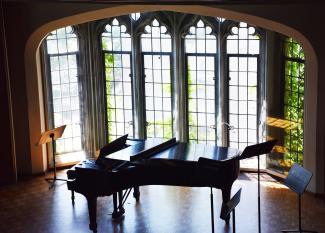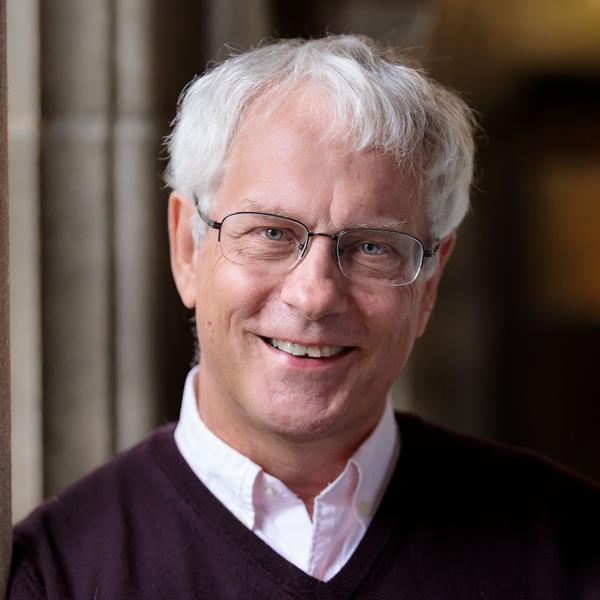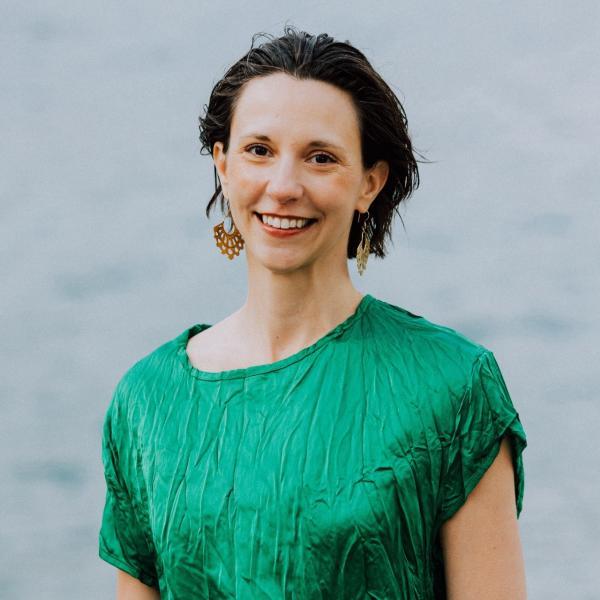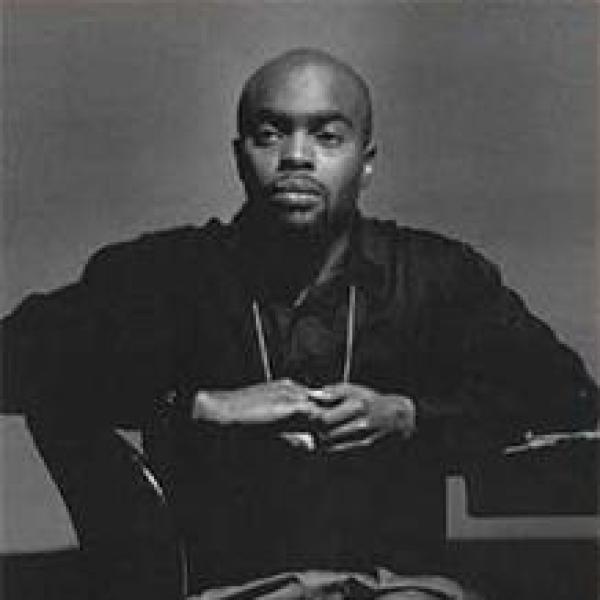
The scholars in the Department of Music have a wide range of expertise in composition, ethnomusicology, and music history and theory. The diversity of scholarship is complimented by the department’s robust performance programs, which MAPH students can participate in. MAPH students who wish to supplement their music coursework may take courses in areas such as East Asian Languages and Civilizations, Language Study, Linguistics, Germanic Studies, Philosophy, or Theater and Performance Studies.
Selected Faculty
Sample Courses
MUSI 33000 - Proseminar in Ethnomusicology (Anna Schultz)
This course’s goal is to introduce graduate students to the history, development and theoretical underpinnings of ethnomusicology as a research discipline. In our readings, therefore, we will focus our attention on key figures and institutions, especially from the late 19th century forward; on major issues and debates in and beyond ethnomusicology; on the relationships between ethnomusicology and other research disciplines; and on emergent emphases and concerns in ethnomusicological work.
MUSI 36817 - Electronic Music II: Introduction to Computer Music Programming (David Bird)
This course is an introduction to computer-based sound art and live electronic music performance. Our primary tool for this course will be MAX/MSP, a computer music programming language designed for composition and real-time music applications. Through this language we will explore the foundations of computer music, including digital instrument design, sequencing, live processing, sound diffusion, and various approaches to algorithmic music generation.
MUSI 44422 Sounding Viral - Metaphor, Media, Aesthetics (Paula Harper)
Far predating Old Town Road or Gangnam Style, music has been conceived of as an infectious cultural force—but the 21st-century regime of ubiquitous digital and social media platforms has amplified and accelerated the potential for music-gone-viral. In this seminar we will grapple with a range of questions that interrogate specific digital assemblages, as well as longer histories and broader concepts of sonic contagion. What does virality sound like? Look like? Feel like? What are the aesthetics of the viral? What does digital viral circulation have to do with “real” biological contagion, in its patterns and mechanisms of infection and social spread? How does digital virality happen? What are its media, social, structural preconditions? (How) is it musical? In seeking to answer these questions, and in surveying what it might mean to engage in a musicology of the digital age more broadly, we will read across disciplines including musicology and popular music studies, sound studies, philosophy and critical theory, media and platform studies.
MUSI 31300 - Analysis of 20th-Century Music (Steven Rings)
This course introduces theoretical and analytical approaches to twentieth-century music. The core of the course involves learning a new theoretical apparatus--often called "set theory"--and exploring how best to apply that apparatus analytically to pieces by composers such as Schoenberg, Bartok, and Stravinsky. We also explore the relevance of the theoretical models to music outside of the high-modernist canon, including some jazz. The course provides an opportunity to confront some foundational questions regarding what it means to "theorize about music."
A complete listing of offerings is available at the Department’s course page.
Music Specialization
The MAPH Music Specialization comprises the MAPH Core Course plus five (5) 300-level (or above) music-focused courses (one in each subdiscipline represented in the department plus one additional elective), a thesis, and a workshop participation requirement. Students who complete the following requirements will receive a Music transcript notation:
- MAPH Core Course (Foundations of Interpretive Theory).
- Ethnomusicology:
- One graduate-level course in Ethnomusicology (e.g., Music Anthropology, Proseminar in Ethnomusicology, or Ethnographic Methods seminar).
- Music Theory:
- One Music Theory course (e.g., History of Music Theory I or Analysis of Twentieth Century Music).
- Music History:
- One Music History course (e.g., a seminar in Western music history such as Topics in the History of Western Music I or II, or a history-focused elective).
- Music Composition:
- One Music Composition course (e.g., an introductory composition seminar or a course in electronic/computer music composition).
- One elective within the Music Department.
- MA Thesis:
- A thesis on a music-related topic, supervised by a faculty member in the Department of Music (thesis advisor should be chosen by the spring quarter of the first year of study).
- Workshop Presentation:
- Presentation of a portion of the student’s thesis research in a music-focused workshop (such as the EthNoise! or the Sound and Society workshop).
Please direct any questions you may have about specializing in Music to maph-support@uchicago.edu.
Recent Music Thesis Projects
“Budapest and Bali: Locating Gamelan in Bartok’s ‘From the Island of Bali’”
Isabella Ortega, MAPH ‘25
Advisor: Thomas Christensen
"The Essentials: Sacred and Secular Music and Poetry from the Abrahamic Traditions of Andalusia, Spain"
Ronnie Malley, MAPH '21
Advisor: Philip V. Bohlman
"Hazy Devotion: A Visual Album in Electronic Music, East Asian Instruments, and Sensory Experience"
Hilary Yarger, MAPH '21
Advisor: Steven Rings



